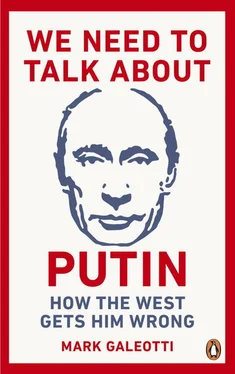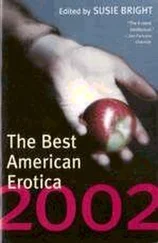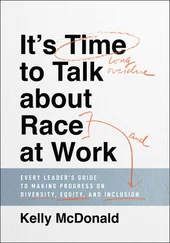This sense of gloomy hopelessness applies as much to domestic as foreign policy. Just as Russia has long mastered the theatre of fake politics, with Kremlin loyalists jostling with a Kremlin-run opposition in empty ritual, so too is there increasingly a feel of fake government. Ministers minister, advisers advise, spin doctors spin, decrees are decreed and memos are minuted. The television news excitedly reports the latest law, the coming debate, but what actually gets done, beyond coping with the day’s crises? In some ways this is unfair, as there has been real progress in some areas, from the measures applied to minimise the impact of Western sanctions to the reconstruction of Moscow into a glittering hipster capital. However, in most spheres of policy, there is much more bark than bite, form not substance. Action for its own sake is not governance, but there is nonetheless a sense that this is the best that Russia can expect these days.
The Russians have a strong tradition of subversive political humour that dates back to Soviet times. A more modern one of these anekdoty has Stalin appearing to Putin in a dream and asking him whether there is anything he can do to help. Putin replies, ‘Why is everything here so bad? What should I do?’
‘Execute the entire government and paint the Kremlin blue.’
‘Why blue?’ replies a perplexed Putin.
‘I had a feeling you would only want to discuss the second part.’
Joking apart, Putin cannot ‘execute the government’, or, in less dramatic terms, do without the oppos, officials and oligarchs with whom he has surrounded himself. So maybe all that is left is spectacle and pageantry – or ‘painting the Kremlin blue’.
In some ways there is a parallel with Leonid Brezhnev, the bushy-eyebrowed General Secretary of the Communist Party between 1964 and 1982. If he is remembered at all these days, it is of how he was in his final years when, almost senile, he slurred scarcely understood speeches that had been written for him, as his country slid towards economic, social and political collapse. The irony is that he had originally risen to power as a tough, effective manager, and the first half of his reign was full of significant achievement, from matching America’s nuclear might to seeing the economy grow. Over time, though, things got harder and his only answer seems to have been adventurism abroad – including embroiling the USSR in a ten-year war in Afghanistan – to distract from stagnation at home. Does this sound at all familiar?
Brezhnev was ill and dying, but is Putin tired? In 2008, he said that he had ‘worked like a galley slave throughout these eight years, morning till night, and I have given all I could to this work’. Despite recurring rumours about back problems (and a personal vanity that seems at the very least to have led to his using Botox), he seems in good health physically, but what about emotionally? For his fascinating book Fragile Empire , Ben Judah spoke to people who had worked on Putin’s staff; one of his interpreters painted a picture of a man now entombed in his position and his legend: ‘He looks emotionless, as if nothing really touches him, as if he is hardly aware of what happens around him. As if he is paying little attention to these people. As if he is worn out… He has spent so long as an icon he is not used to anyone penetrating… He is isolated, trapped.’ The real question is thus whether he still wants the job – and that deserves a chapter all of its own.
Chapter 11: Does Putin Want Out?
In 2017, Putin held a televised meeting with schoolchildren in Sochi. When one of them asked him what he would do when he retires, he replied, ‘I haven’t decided yet if I will leave the presidency.’ In 2018, a question at an investors’ forum about Russia after his reign prompted him to reply, ‘What’s the rush? I’m not going anywhere yet.’ Everyone laughed – some awkwardly, some cheerily.
Certainly the Western assumption is that Putin, having already manipulated the constitutional order to get around term limits once – spending four years as prime minister – is planning on being president for life, and that when his fourth term ends in 2024, he’ll find some way of staying on. If that happens, though, this will reflect failure rather than triumph. After all, at that same gathering in Sochi, he wistfully said, ‘You know, dreams are things that change over time.’
In the 2000s, he was younger, hungrier and, above all, luckier. Since then, everything seems to be getting harder. The challenges he faces are intractable: diversifying a low-productivity economy that is still too dependent on oil and gas while also being increasingly locked away from Western investment and technology, for example, or dealing with a looming demographic crisis as fewer young Russians have to pay for more pensioners. One in eight Russians still lives below the poverty line, and too many of the best and the brightest try to emigrate. His forces are stuck in both Ukraine and Syria, with no clear exit strategy. The Russian people themselves are less grateful, more demanding. There were almost a third more protests in 2018 than in 2017, for example. The Communists, so long content to be a zombie opposition, are now showing signs of life, and organised more than a third of them.
An increasingly bored, disengaged Putin seems to have been looking for a successor for some time, which implies that he is at least contemplating handing over his power – or at least his duties. The insider consensus in Moscow is that he wants to find a new-generation mini-me whom he will be able to trust to protect both himself and his legacy, and also (because trust only gets you so far), to construct a constitutional position to allow him semi-retirement and the chance to interfere in politics without any responsibilities. If he can arrange those, he will likely not even serve his current six-year term. But ‘getting out’ would just mean from the job; Putin will not be the kind of ex-president likely to be hankering after a Caribbean villa, games of golf with other former heads of state and the international speaking circuit.
He is likely to remain in Russia, but here we come to the issue about Putin and money: while he enjoys the good life that wealth allows, it has been power that he has really craved and collected. Even in this day of electronic finance, money is a thing. It can be hidden, sent abroad, willed to your children. Power is active, ephemeral, it must constantly be refreshed and reasserted. Back in the Soviet era, one reason why so many leaders died in office was because they knew that they would become vulnerable as soon as they retired. Everything they had – the cars, the mansions, the summer dachas – could be taken away from them by their successor. The tragedy of modern Russia is that the same is still true: Putin may never feel secure enough to put his future in anyone else’s hands.
Putin made his political career as a loyal bagman. He got his hands dirty for Mayor Sobchak in St Petersburg, and when police investigators were closing in on his boss on embezzlement charges, he arranged for the private plane that took him out of the country. When he worked at the Presidential Property Management Directorate, one of the more infamously corrupt agencies, even by Moscow’s standards, he kept his new boss out of the crosshairs, even while corruption investigations sprung up all around him. As director of the FSB and then prime minister, he looked after Yeltsin’s interests – literally the first thing he did as president was sign a decree guaranteeing his predecessor lifelong immunity from prosecution. So can Putin find himself a Putin of his own?
This makes it all the more important to consider a third key question: just how far is Putin really in charge? I don’t mean that there are sinister string-pullers behind him, as much as that he has to work, find out about the world and issue his orders through others. The amount of power the machine has over its purported operator should not be underestimated. Mikhail Zygar, who always has a nose for a great story, tells of how Putin was persuaded to bid for the 2014 Winter Olympics. The oligarch Vladimir Potanin, a keen skier, had become involved with a project to develop a resort near his dacha at Krasnaya Polyana in Sochi. He was keen to make it part of an Olympic bid in order that the government would foot the bill, but Putin was dismissive when the idea was broached in 2005. At that time, he had not yet warmed to the idea of major sporting events as both national PR and great ways to make the elite compete for your favour (and the lucrative contracts to build facilities and infrastructure you can then dispense). So Potanin turned to Dmitry Peskov, then the deputy press secretary, who explained how to change the boss’s mind. Billboards went up advertising the Sochi bid, but only along roads that the presidential motorcade would be taking. Radio adverts were bought, but only on the stations and at times when Putin might be listening. Peskov arranged for someone in a ‘Direct Line’ to ask Putin when Russia would finally host an Olympics. The idea was to make him believe that the country was crying out for it, and that he could profit from that mood. He was duly convinced, and the whole effort of the state then went into trying to win the bid to stage a Winter Olympics in, of all places, a subtropical region, a city with no airport and minimal infrastructure, which had to be rebuilt pretty much from scratch, making it the most expensive Games to date. And all because Peskov was able to tell Potanin how to manage the boss.
Читать дальше












